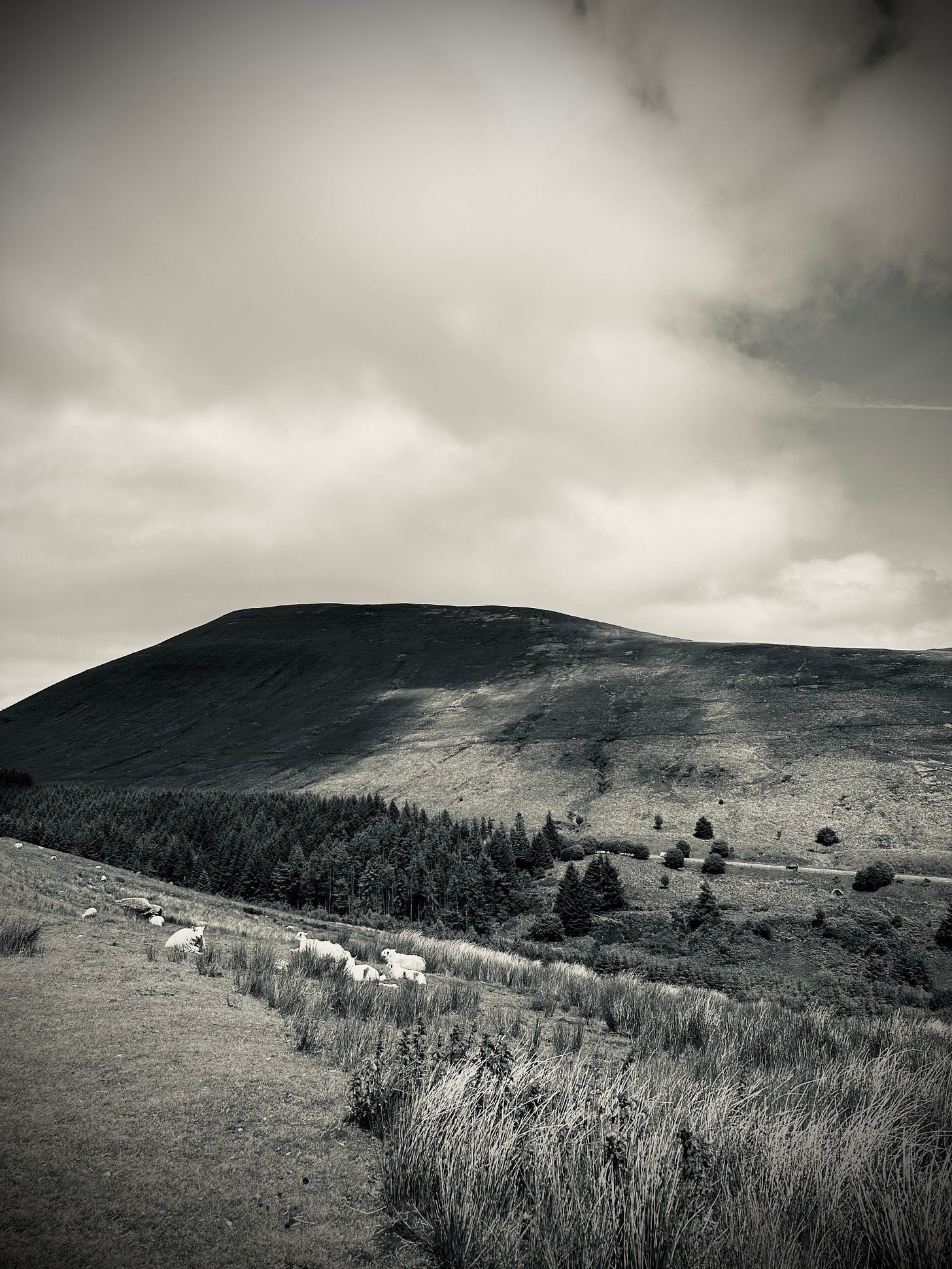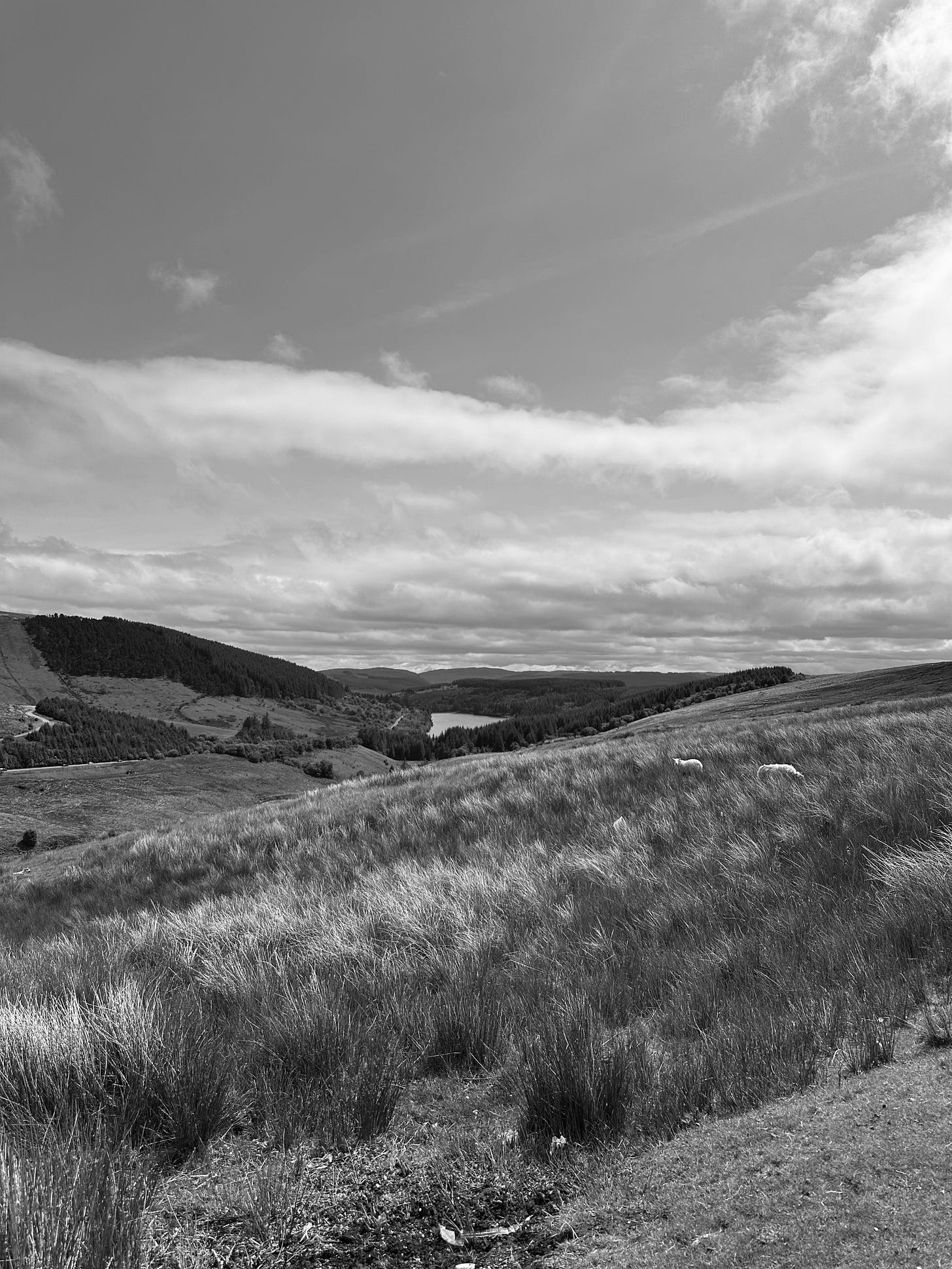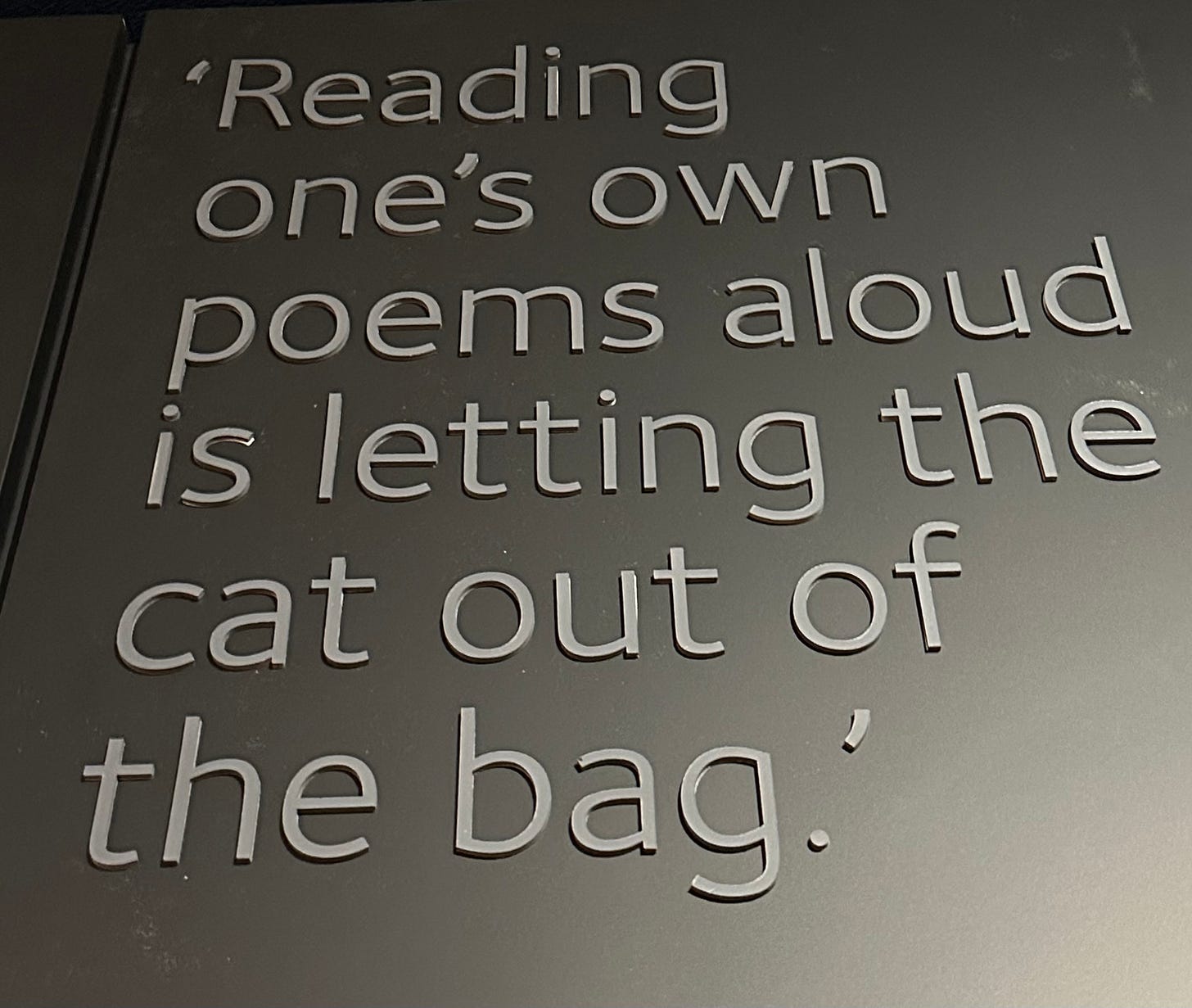“The business of chivalry is toward some cradle between court and forest”.
Martin Shaw
The title of this month's Fenland Musings comes from the poetry anthology American Poetry, Wildness and Domesticity, edited by Robert Bly, with part one titled Looking For Dragon Smoke.
Bly’s inscription inside the front cover quotes Lorca and his definition of “Duende”:
“Very often intellect is poetry's enemy because it is too much given to imitation, because it lifts the poet to a throne of sharp edges and makes him oblivious of the fact that he may suddenly be devoured by ants, or a great arsenic lobster may fall on his head.”
Bly adds:
“Duende involves a kind of elation when death is present in the room. It is associated with “dark” sounds; and when a poet has duende inside him, he brushes past death with each step…”
I came across this book in Hay-on-Wye, as I was driving from Hereford to Swansea via the Brecon Beacons. It was part of a collection of early Bly volumes, all signed, and previously, I discovered, once in the hands of the Welsh poet David Greenslade.
It was the poet Tom Hirons who first properly introduced me to duende whilst I was attending his poetry workshop, Wielding the Green Knife. Though I am likely certain it was Martin Shaw’s Snowy Tower where I first rubbed up against it.
As I drove across the Welsh mountains, I became aware of two strong images. Images contained in the book titles and quotes above, such as “the throne of sharp edges”. The two images are those of Kings (or sovereigns) and Dragons. Here, I noticed further synchronicities because I am currently reading a book titled Facing the Dragon, by Robert L. Moore, and this trip came less than two weeks after I completed some training on working with men, at which the story of the Lindworm, or The Serpent Prince, was told.
I've spoken about the Lindworm story before, and I've facilitated two men's groups over recent years where this story was our main focal point. For those of you unfamiliar with the story of the Lindworm, here are a couple of resources that you can refer to: the first, a telling by Martin Shaw, and the second from Robert Bly.
There is a moment in the story where the King and the Queen, on discovering the existence of this wild, untamed and exiled elder son, decided that the only thing for it was not to ignore his existence, but rather to welcome him back into the walls of the palace. This alone is a courageous act.
But in Facing the Dragon, I learnt something about this part of the story I hadn't noticed or understood before.
Moore describes how tribal communities have long turned to the power of community in dealing with so-called “grandiose energies”, dragon energies, and that it is through community that such powers can be tempered and transformed from destructive forces to a source of blessing.
Moore further explains the different sides to these energies:
“Throughout human history, spiritual masters and sages have utilized various mythological images to symbolise the presence and power of the grandiose energies they intuited to be present in the depths of the human psyche. My own research has found no mythic image for these energies used more often than that of the dragon. World mythology presents the dragon with two different faces: the dragon as enemy and the dragon as a source of power and blessing.”
So, in the Lindworm, my fresh interpretation is that had the serpent prince remained in the deeps of the forest, alone, we would likely have never discovered the blessed young prince underneath all those scales.
Community, I now know, is key to welcoming, containing, and ultimately transforming all that is wild and untamed.
That act of the king and the queen, where they became the bridge between forest and court, between wildness and domesticity, was not without risk, even of death, perhaps. Duende was clearly in the mix.
On the act of tempering, I have spoken to men who distinctly dislike the idea of being ‘tempered’. I think this is because it speaks to moderation, but also to sacrifice, and to turning away from temptation. Being a little less grandiose, perhaps. But I also wonder if, consciously or not, it speaks to embracing community, accepting that we can’t shed our scales on our own, that it’s just too painful to do all the inner work alone, and to showing up a little more vulnerably perhaps and facing into our shadow.
Here’s a final thought. In the story of the Lindworm and so many others, we learn that there is not only a serpent prince present in our psyche, but also a generous king or queen, ready to fling open the palace gates and bring in a little bit of duende.
We don’t want to get rid of all of that wildness; we instead need the courage of the sovereign ruler to direct it in a life-giving way.
This is part of the initiatory path I am exploring further with a new offering for men, titled “The Forest of Kings, a Mythopoetic Journey into the Heart of the Masculine Psyche.
For now, I’ll close with Shaw’s words, and a poem I wrote after my own encounter with dragon smoke.
“Grandiosity when tempered to service can give you a tail, teeth and a rooster’s coat.”
On Crossing the Brecon Beacons on the Back of a Wild Horse As I was crossing the Brecon Beacons, On the back of a wild horse, From below me rose The plume of blue smoke. It reared up from a rocky nostril Protruding from the earth's face. Prior to encountering my horse I may have missed it, Or, misidentified the source. Which was of course dragon smoke. Exhalation of serpent song, Its tail wrapped several thousand times Around the bleak foreboding peaks, Cantering in scaled strangulation. Now you would do well never to sever The head of the serpent. The tail unleashed could do untold damage. Better at least to climb down off your saddle. Let go of the bridle. Follow the smoke trail. Right to the centre, To the source of the secret song. And there, carrying your lighted lanterns, Wicks-a-flicker, Tasting the air, You begin a slow acquaintance With the shadows. That till now you didn't dare decipher.
1. “Ungraspable”: Sandrayati - Wonder
“I wonder if you notice
That loving me is like loving the sea”.
This is such a tender vocal from Sandrayati and her upcoming new album.
2. Reading: Chroma - Derek Jarman
“Is black hopeless? Doesn’t every dark thundercloud have a silver lining? in black lies the possibility of hope”. ~ Derek Jarman
3. Visiting: The Dylan Thomas Centre
Earlier this month, I visited the Dylan Thomas Centre in Swansea. I've written some brief reflections here, and I especially love the quote below.
Thank you for supporting my work here at Fenland Musing and The Will Johnson Journey more generally. Every little bit of support is greatly appreciated.
Fenland Musings will always be free to read, but if you feel it’s worth it and have the financial means to do so, please consider a paid subscription. Even a month or two makes a big difference to me.
And please do spread the word about the work I am doing with men! Personal referrals seem to be the most effective way of connecting with men!
The Forest of Kings: A Mythopoetic Journey into the Heart of the Masculine Psyche
This September, I am pleased to share a new offering for men to come together in community, to explore some of the deeper, archetypal characteristics we each carry.
All the details here or get in touch for a chat, Will@thewilljohnsonjourney.com
A Courageous Conversation?
If you would like to book a chat with me, you can use the link below. I would love to hear from you!
Fenland Musings will always be free to read, but if my writing efforts have helped or touched you in some way, please consider taking out a paid subscription - even a month or two would make a huge difference to me. And I appreciate we live in tough times, so your support is deeply appreciated!









So much in the post, dragons, Tom Hirons and duende were the things that caught my attention. I now know a little more about duende, any mention of Tom gets my attention, he is an inspiration, and dragon? Well I used to tell a story to children about how I turned into a dragon, loosely based on CS Lewis' story in The Voyage of the Dawn Treader, so I have an affection and fear of them! Thanks for the musings, much appreciated.